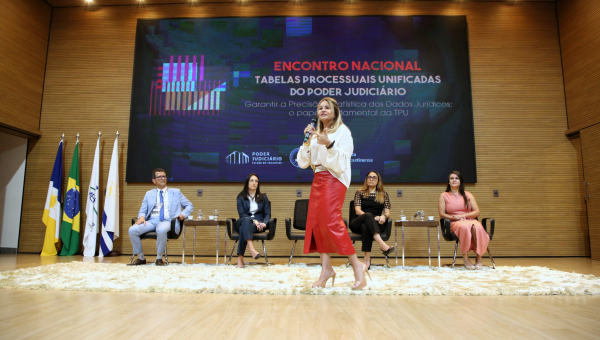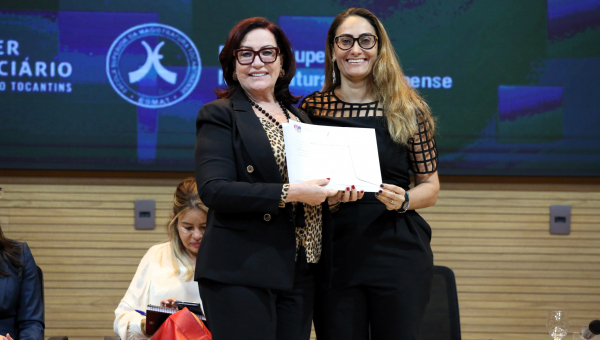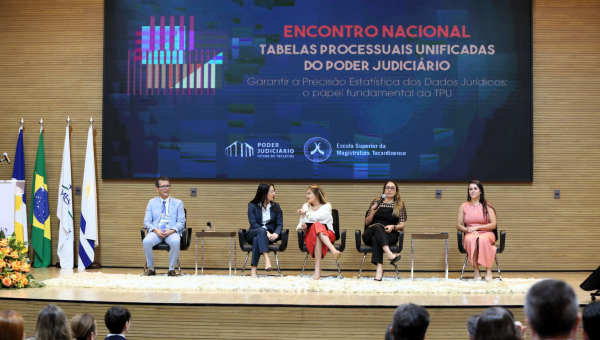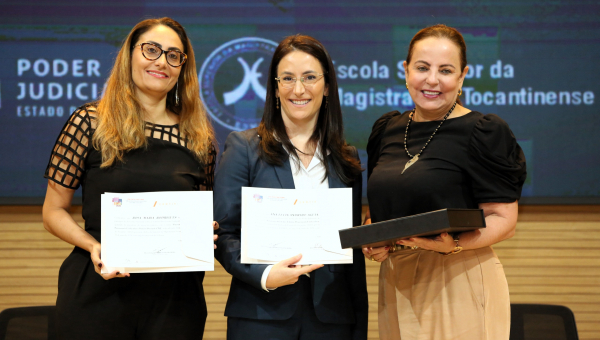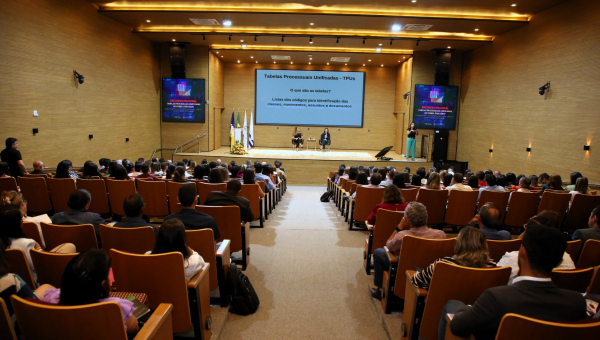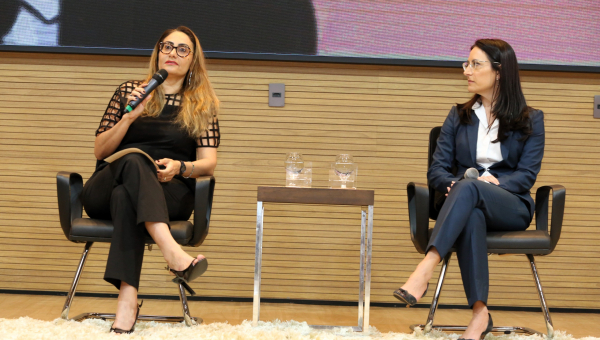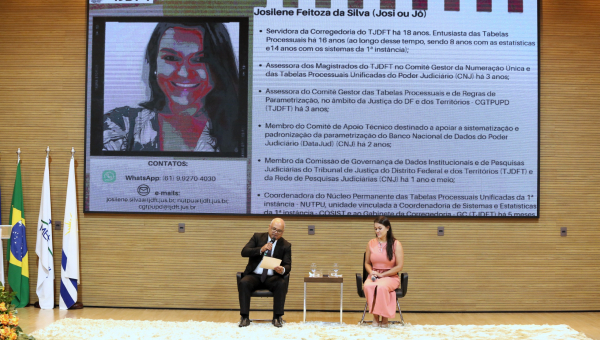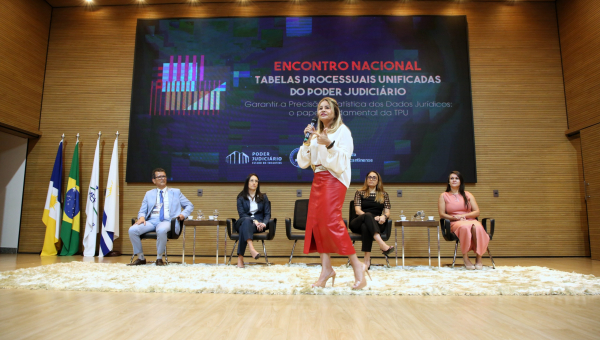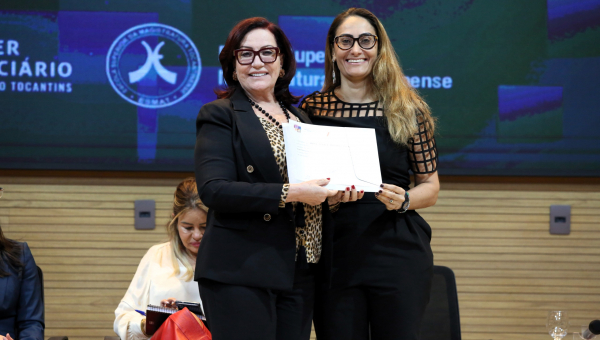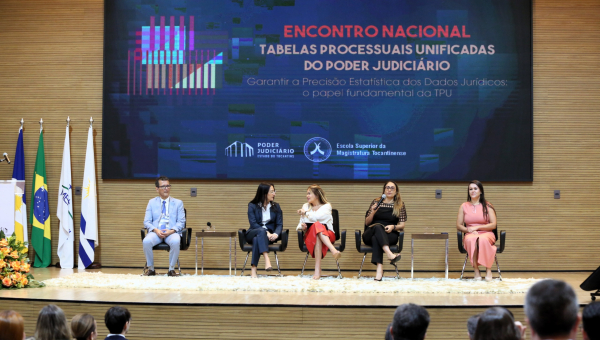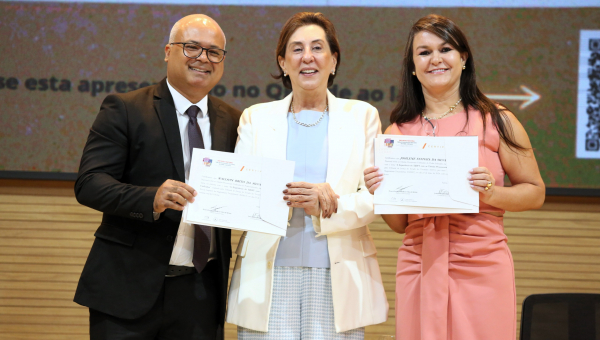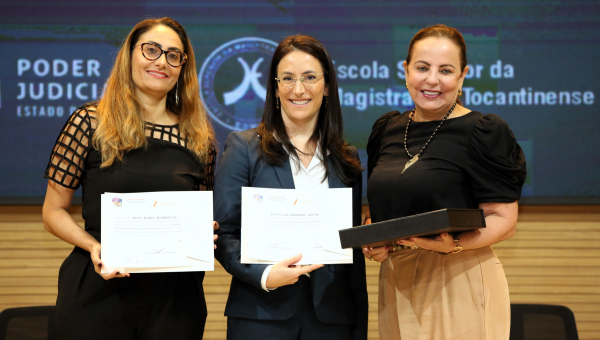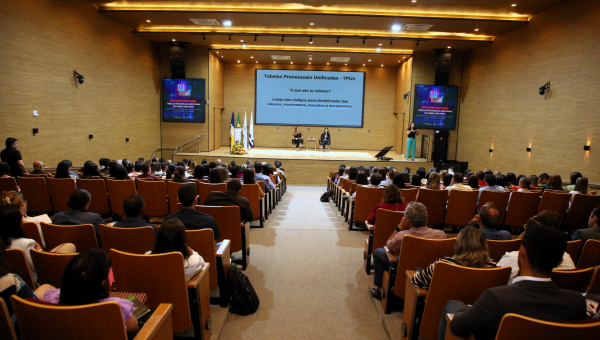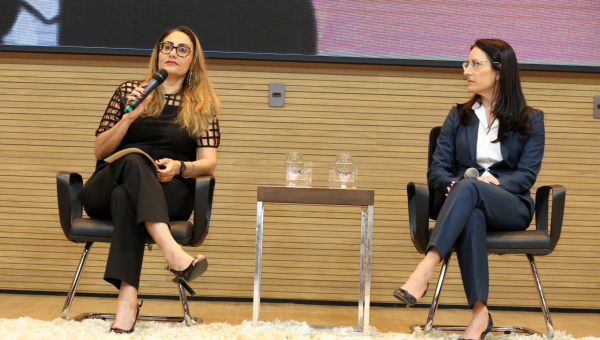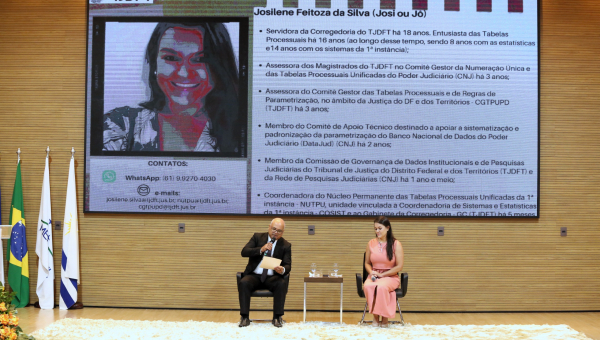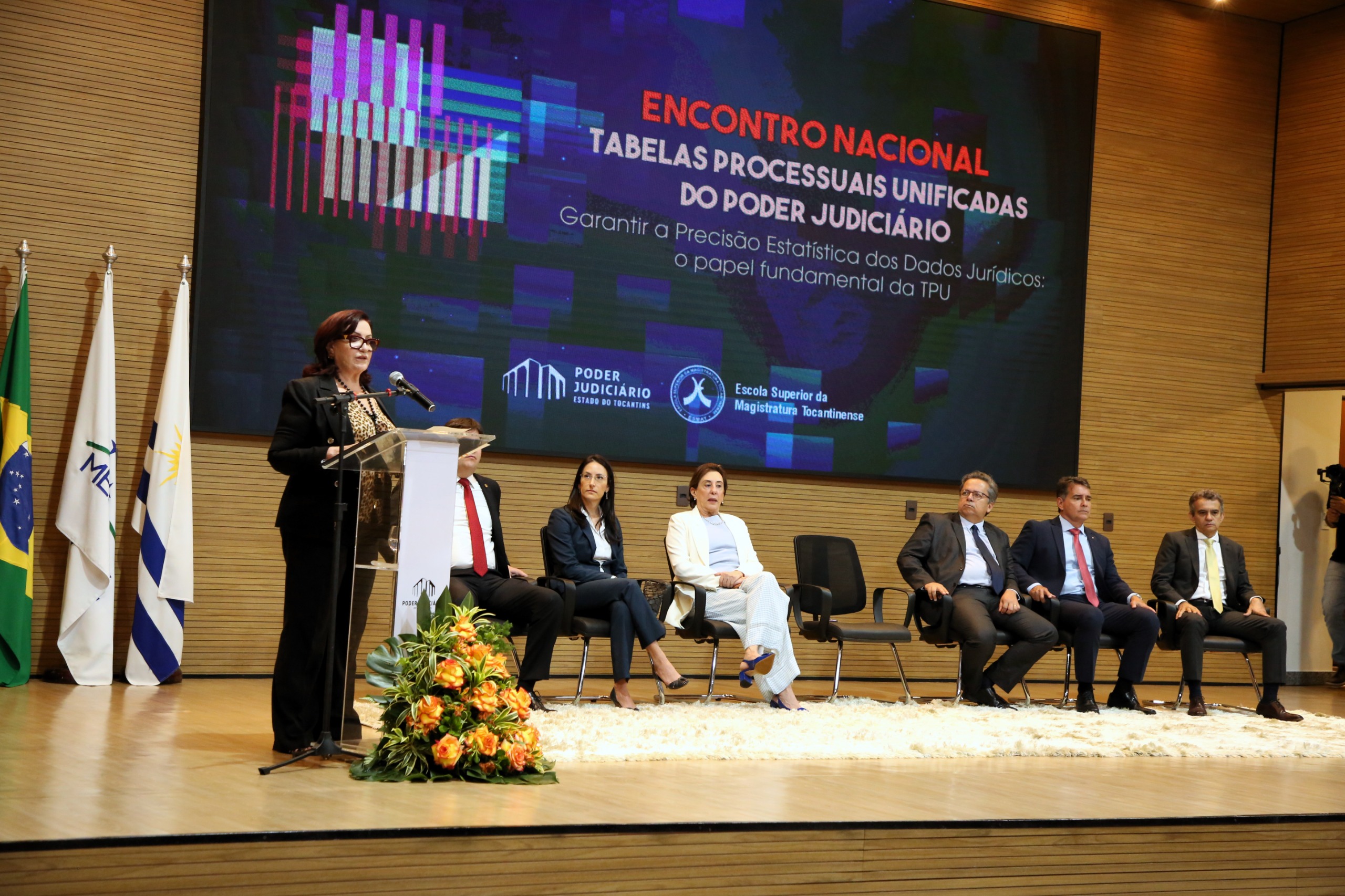
"With the correct use of the Unified Procedural Tables (TPUs), we can identify the phases, the time of the case, the results of the judgments..., which allows us to extract more precise management information for more efficient and effective management," said the President of the Court of Justice of the State of Tocantins (TJTO), Justice Etelvina Maria Sampaio Felipe, as she opened the National Meeting on the Unified Procedural Tables of the Judiciary on Thursday morning (May 23rd). The event is being held in the auditorium of the TJTO and it continues into the afternoon.
Speaking about the importance of the unified procedural tables, the President stressed the importance of the meeting, which aims to promote debates and develop proposals for the correct use of the TPUs.
At this meeting, we will exchange experiences and best practices, clarify doubts, collaborate and cooperate, which will certainly reinforce the indispensability of the correct application of the unified procedural tables by the courts, ensuring uniformity in the feeding of data and, consequently, greater reliability of information from the Judiciary.
"We need to trust our judicial data so that we can guarantee transparency, efficiency and standardization," added Justice Etelvina Maria Sampaio, citing the importance of the presence of representatives from the State Prosecution (MPTO) and the Brazilian Bar Association (OAB) at the meeting, since it is through them and members of the Public Defender's Office that lawsuits are filed with the Judiciary.
Unified procedural tables and DataJud/CNJ panels
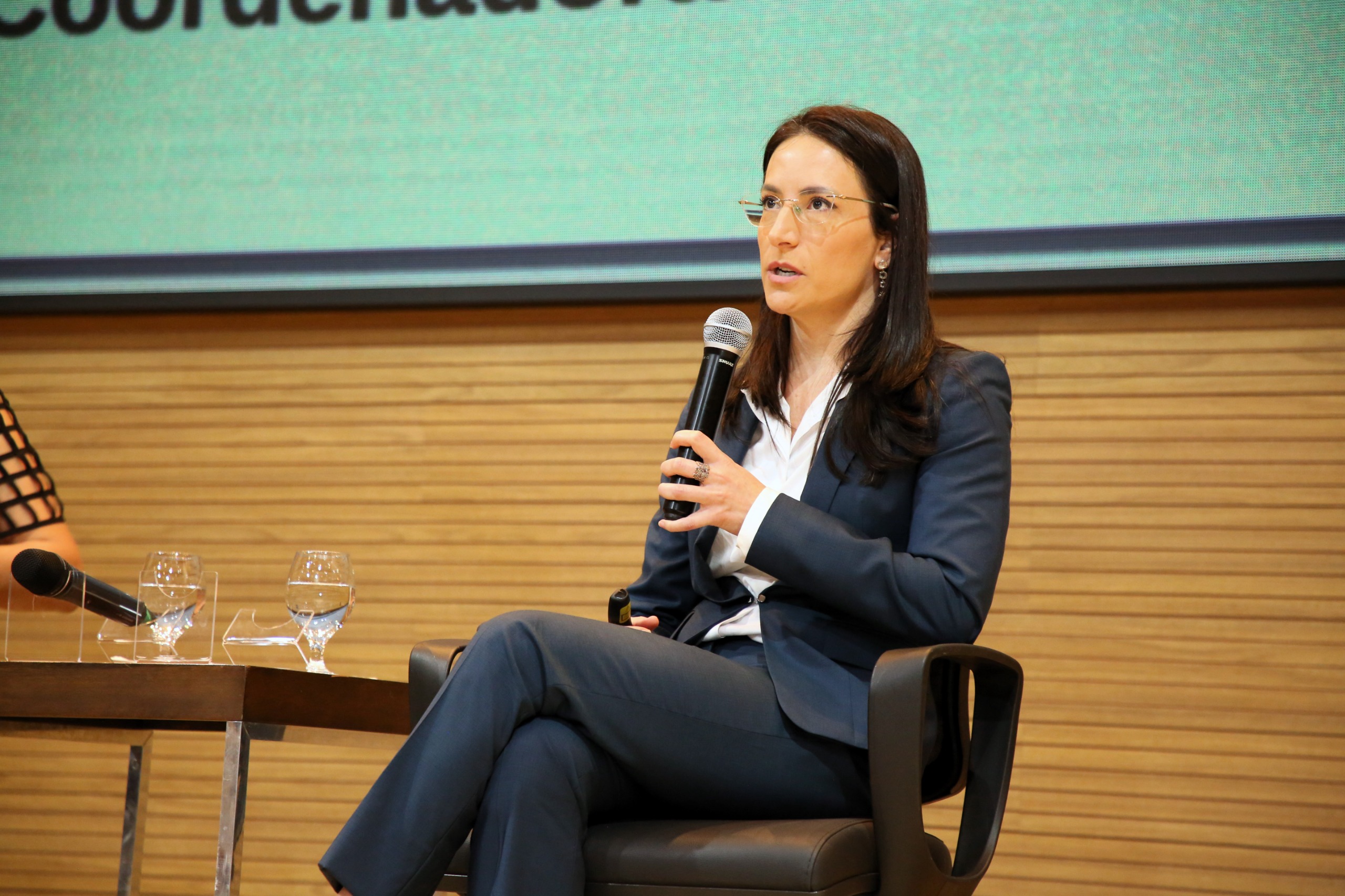
"The unified procedural tables are important, basically, so that we have uniformity of treatment in data management," said Ana Lúcia Andrade Aguiar, Assistant Judge to the President of the National Council of Justice (CNJ) and President of the National Management Committee for the Unified Procedural Tables of the Judiciary, in her lecture on the topic: "Overview of the Unified Procedural Tables and DataJud/CNJ Panels".
Talking about the standardization of data, the magistrate explained that this procedure is important for procedural statistics, so that it is possible to count the data correctly, and also as inputs for judicial and public policies, such as the creation/extinction of courts, specialization of courts and equalization/compensation of case distribution.
During her presentation, the speaker emphasized that the Unified Procedural Tables are lists of codes for identifying classes, movements, subjects and documents in cases. According to the presentation of the Judge, 830 classes, 847 movements, 5,367 matters and 1,281 documents have been registered.
On the occasion, the speaker said that the TPUs are available on a public platform called the Unified Procedural Tables Management System (SGT) and that the tables were created by the Resolution 46/2007 of the CNJ.
Judge Ana Lúcia recalled that the tables are used by the parties in processes, lawyers, the State Prosecution and the Judiciary, the latter being able to correct any data indicated or recorded by the lawyers and the State Prosecution.
On the occasion, the speaker presented some data and the DataJud statistics panels of the CNJ, large litigants and goals, and mentioned the challenges of constantly updating of the tables and sensitizing of the internal and external agents to the proper feeding of data.
The lecture was mediated by Rosa Maria Rodrigues Gazire Rossi, Assistant Judge to the President of the TJTO, who emphasized the importance of reliable data so that the top management of the courts can make safe decisions.
Experience of the TJDFT with the TPUS
The coordinator of the Permanent Center for Procedural Tables of the First Instance of the Court of Justice of the Federal District and Territories (TJDFT), Josilene Feitoza da Silva, presented the experience of the TJDFT with the unified procedural tables in a lecture mediated by the Judicial Director of the TJTO, Wallson Brito da Silva.
According to the speaker, the TJDFT began working with the Unified Procedural Tables in 2008, but it was from 2020, with the Resolution No. 326 of the CNJ, that it began to fully adopt the procedural tables, especially in relation to movements.
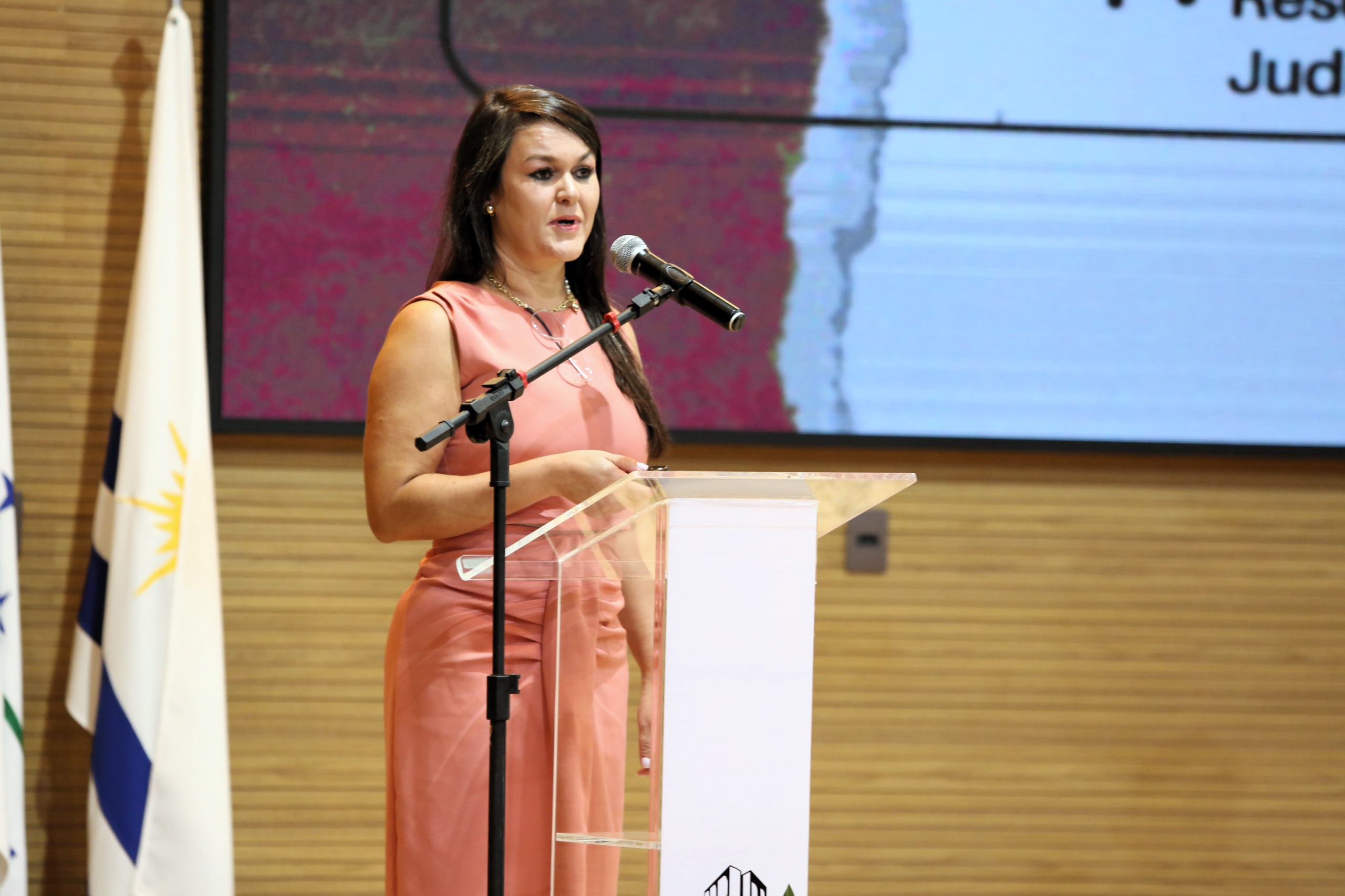
Josilene Feitoza also spoke about the creation of the procedural tables management committee at the TJDFT and said that the dissemination of information about the TPUs began when they realized that people didn't really know about the tables.
The speaker highlighted some of the functionalities of the tables in the Electronic Judicial Process, especially the association of the movement, decision, order and judgment of the magistrate, with the models of judicial acts. "Whenever there is an update to the table of movements directed at magistrates, we recommend that the offices associate these movements with the document templates in order to optimize the registration of the judicial act by the magistrate," she said.
In addition, she mentioned the deassociation of inactive movements from the templates of judicial acts; registering the movement that best corresponds to the act and avoiding registering generic movements.
A few years ago, the TJDFT started using artificial intelligence tools and the speaker brought some examples developed by the team of the Court, such as Toth, which identifies, from the initial petitions distributed, what the possible classes and subjects of the cases might be and suggests a classification that will be reviewed by the Judicial Registry.
The speaker also shared some of the experiences of the TJDFT with the data in the tables. "Sometimes, the person doesn't even have a case distributed in the Judiciary, but with the standardization of data registration, based on procedural tables, parameterization rules, we manage to mirror the best reality of judicial proceedings in the entire judiciary," she said, stressing that everyone benefits from the adoption of judicial and public policies.
Good practices in the District of Araguaína
During the event, Milene de Carvalho Henrique, judge of the District Court of Araguaína for Tax Enforcement and Public Health Actions, brought practical contributions from the tables in health actions.
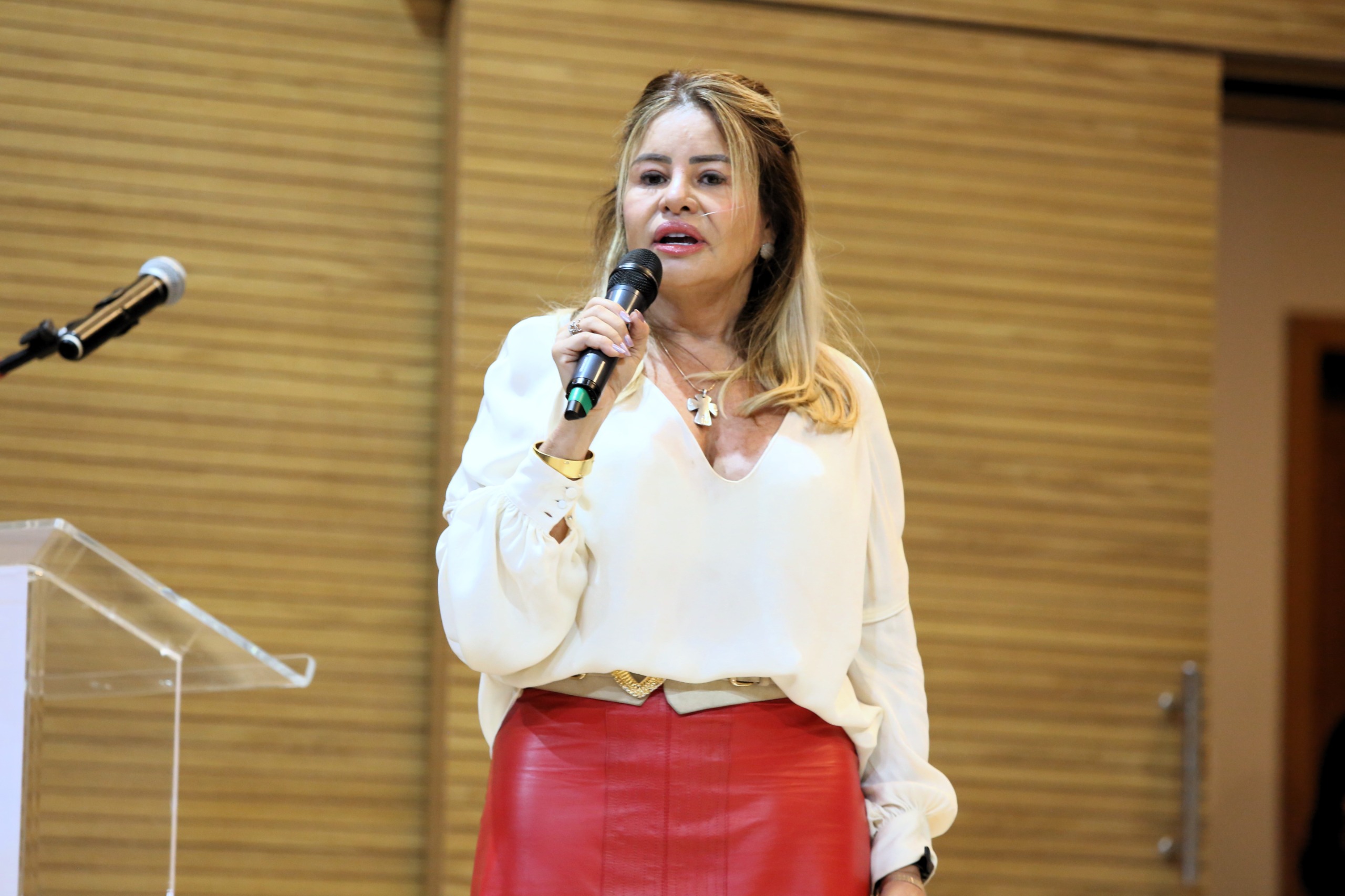
A great enthusiast of the TPUs and DataJud, as she defined herself, the Judge said that it is the Unified Procedural Tables that guide all her work, especially in the management of the 28,000 health cases in progress.
The magistrate recalled some success stories from the use of the TPU data and stressed the importance of filling in the system correctly.
The good practices activity was led by Judge Rosa Maria Gazire Rossi; Judge Rafael de Paula, from the District Court of Palmas; Ana Lúcia Andrade Aguiar, Assistant Judge to the President of the CNJ; and Josilene Feitoza da Silva, coordinator of the Permanent Center for Procedural Tables of First Instance of the Court of Justice of the Federal District and Territories (TJDFT).
Positive programming
For the civil server Jorge Amancio de Oliveira, who works in the district of Ponte Alta, the programming of the morning was very positive.
I thought this sequence was very good, first there was a theoretical part, not so theoretical, but which brought this theoretical side of demonstrating the importance of the tables and then complemented it with the practical part," said the civil servER, highlighting the first and second lectures of the event.
Presences
The event was attended by the Deputy Director of the Superior School of the Judges of the State of Tocantins, Justice Angela Haonat; the Vice-President of the TJTO, Justice Ângela Prudente; the Assistant Judge of the General Internal Affairs of Justice, Arióstenis Guimarães Vieira; the Deputy Judge of the General Internal Affairs of Justice, Marcelo Sampaio; the President of the Brazilian Bar Association, Tocantins Section, Gedeon Pitaluga Júnior; and the President of the Association of the Association of the Magistrates of the State of Tocantins, Judge Allan Martins Ferreira; as well as other magistrates, civil servers, members of the justice system and the community in general.




